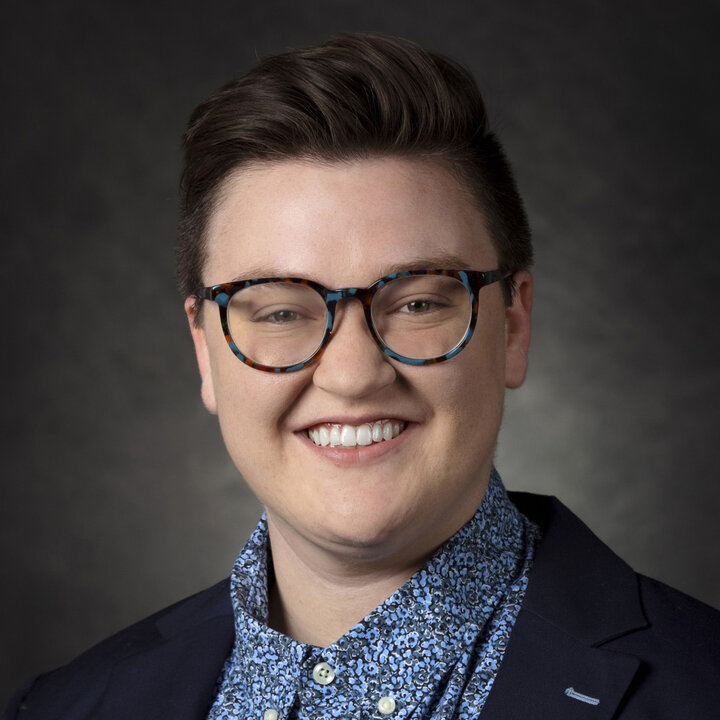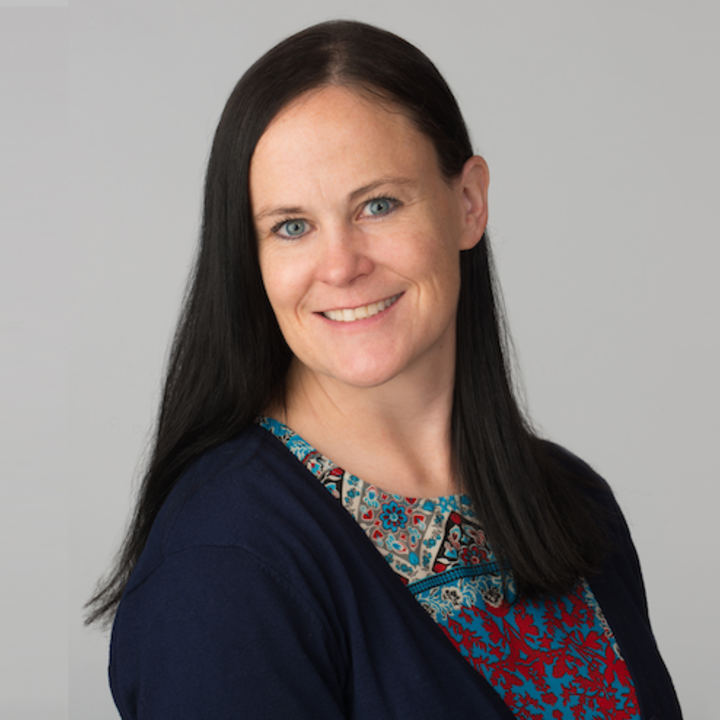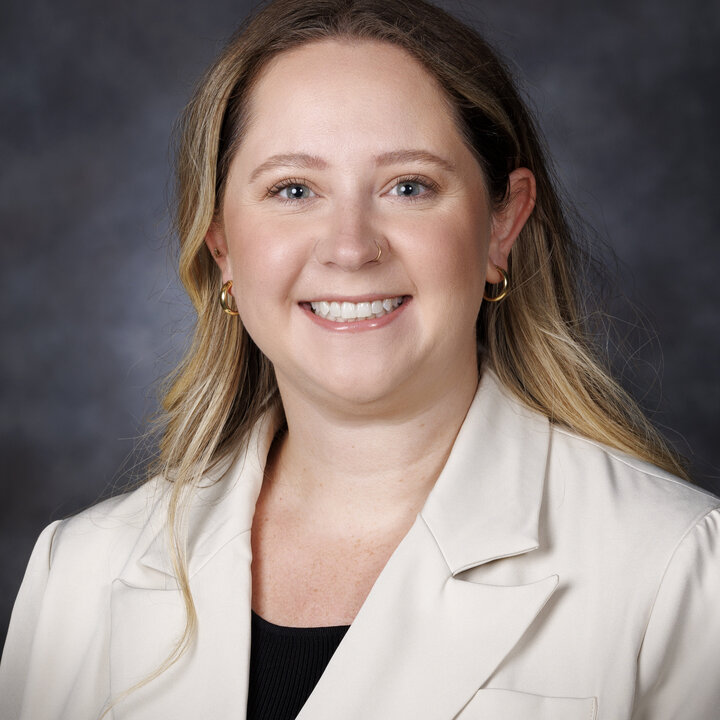Marriage and Family Therapy Specialization
Master of Science (M.S.) in Child, Youth and Family Studies
Interested in our program?
Welcome! Chances are, if you're here, you have an interest in learning how to help people navigate life's difficulties. With a degree in Marriage and Family Therapy from the University of Nebraska-Lincoln, you can develop the skills necessary to help individuals, couples, and families navigate life’s challenges and improve their well-being. Our program focuses on developing ethical, systemically minded, multi-culturally sensitive, attachment-oriented and trauma-informed mental health clinicians who go on to work as therapists within an agency, hospice, hospital setting, or community and private clinics.
Our program is fully accredited by the Commission on Accreditation for Marriage and Family Therapy Education (COAMFTE) since 1993. The COAMFTE is the standard setting organization for family therapy training recognized by the Council for Higher Education Accreditation. The coursework for this degree meets the educational requirements for licensure as a Marriage and Family Therapist in the State of Nebraska. Faculty advisers can also work with you to create a program of study that meets the specific licensing requirements of the state in which you wish to practice. You can find a list of state licensing boards here.
Our program is designed to take 24 months. During that time, students will acquire a minimum of 400 direct contact hours, with at least 150 of which are relational. However, most students graduate with 500+ hours having worked with individuals, couples, families, and relational groups. Marriage and Family Therapy students receive over 100 hours of combined individual and group supervision based on live observation of client sessions, therapist reports and videotape of client sessions from a variety of AAMFT Approved Supervisors and Supervisor Candidates with diverse backgrounds and clinical experiences.
The MFT program at UNL is unique in that students receive:
- Training in the utilization of distance technology to deliver mental health treatment to underserved populations.
- Advanced training opportunities in trauma-informed and relationally based care, including:
- Gottman Level 1 training
- Attachment-Based Family Therapy training
- Narrative Exposure Therapy (NET)
- An on-campus training facility, the Couple and Family Clinic at UNL’s Family Resource Center, consisting of five therapy rooms, multiple observation rooms and state-of-the-art recording technology.
- 12-month internship placements in urban and rural settings. Examples include UNL's Student Housing and distance therapy for underserved populations.
Students also have the opportunity to take EMDR training independent of classes during their second year of study. Our program uses a cohort model, providing students the opportunity to experience the program with a group of supportive classmates. Cohorts are typically comprised of eight to twelve students who start and complete the program together.
Program At A Glance
| Total Credit Hours | Completion Time | Cohort Size | Next Application Due: |
| 49 hours | 24 months | 8-12 | Dec. 1, 2026 |
Additional Program Information Graduate Achievement Data Table Additional Program Demographics
Core Faculty Members
Application to this program
This program can be completed in 2 years, including summers, involving 49 credit hours of course work requirements. The Marriage and Family Therapy Handbook contains detailed information on our coursework requirements, professional and developmental expectations, program calendar, and policies and procedures of the Couple and Family Clinic; however, the following is a short list of the program requirements:
Training involves academic course work (49 credits) and supervised clinical experience. Each trainee must complete a 12-month practicum experience in which the student works with clients both at the on-campus clinic and an off-campus community agency
- Students must acquire a minimum of 400 direct contact hours, with at least 150 of which are relational. However, most students graduate with 500+ hours having worked with individuals, couples, families, and relational groups.
Supervised Clinical Experience: The supervision of clinical experience is essential during the training phase of providing therapy to individuals and families. The majority of MFT faculty members are Approved Supervisors or Supervisor Candidates with the American Association for Marriage and Family Therapy (AAMFT). Faculty supervisors meet with the students weekly in both group and individual supervision. Supervision with faculty supervisors typically involves students presenting videotapes of their clinical work, or live observation of providing therapy. The faculty supervisors work with the community agency supervisors throughout the practicum year.
Required Core Classes:
| Course Number | Title |
| CYAF 846 | Addiction and Violence |
| CYAF 865/863 | Research Design and Methods or Youth Professionals as Consumers of Research |
| CYAF 870 | Multicultural Competencies in Mental Health Treatment |
| CYAF 951 | Theoretical Foundations of Marriage and Family Therapy |
| CYAF 952 | Psychopathology and Dysfunctional Interactions |
| CYAF 953 | Issues and Ethics for Family Professionals |
| CYAF 954 | Clinical Assessment |
| CYAF 955 | Clinical Family Therapy |
| CYAF 956 | Couples and Sex Therapy |
| CYAF 997 | Advanced Practicum in Family Therapy (a 4-course series) |
*The College of Education and Human Sciences requires all students admitted into a campus program to complete a background check before the start of their first semester.
For more information on our program, please see the Marriage and Family Therapy Handbook and our Grad Student Resource page. Our students are expected to adhere to UNL's Student Code of Conduct.
Cost of attendance will differ from one student to another. Please see the Graduate Studies' tuition and fees webpage for more info.
Deadline: December 1, 2024
Required materials:
- Unofficial Transcripts
- English Proficiency (if your native language is not English)
- Resume
Statement of Professional Goals
In your Statement of Professional Goals, address the following:
-Why are you interested in pursuing a degree in Marriage and Family Therapy?
-Why are you interested in attending the University of Nebraska-Lincoln's Marriage and Family Therapy Program?
-How have you interacted with marginalized populations (e.g., the LGBTQ+ community, People of Color, people living in low socioeconomic environments, etc.)?
-Why do you think it is important for therapists to attend to issues of diversity when trying to understand mental health?- Three Letters of Reference
Ensure that at least one reference letter is academic (e.g., instructor, advisor) and any non-academic letters are professional (e.g., relevant employer)
Apply Now



